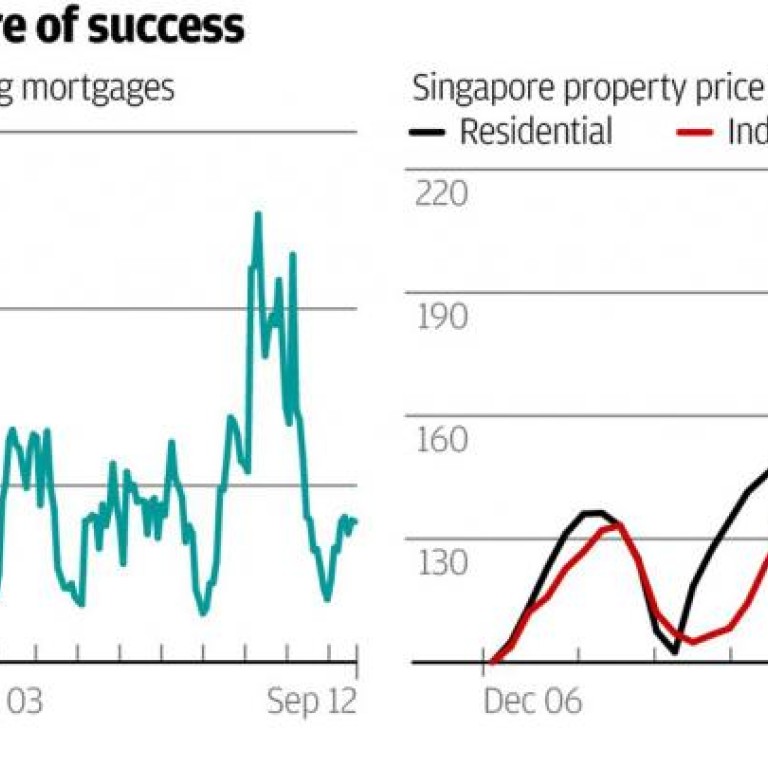
The great attraction of cash extraction
Home prices are still rising, perhaps it is because Hong Kong property owners have been re-mortgaging their homes to buy another flat
It's still too early for any hard numbers telling us about the impact of the latest government measures aimed at making Hong Kong property more affordable for local buyers.
But the initial signs are not encouraging. The latest data-point on the Centa-City leading index shows a steep 1.5 per cent price rise in the week following the late October imposition of punitive stamp duties on non-resident buyers.
Perhaps that shouldn't be such a great surprise.
Although sharply rising home prices have often been blamed on an influx of cash-rich speculators from the mainland - the group targeted by the government's new tax - one of the main drivers of recent price rises can be found rather closer to home.
Over the last few years Hong Kong property-owners have been increasingly ready to use their flats as cash machines. Since the beginning of 2009, more than 100,000 have taken advantage of rock-bottom interest rates to take out a new mortgage on their existing homes.
They didn't embark on a spending binge with the money like US consumers in the years before the financial crisis. Instead Hong Kong borrowers took the cash they extracted from their homes and used it as the downpayment for another mortgage on a second flat.
If you doubt that, take a look at the first chart, which shows the number of refinancing mortgages taken out each month on existing homes.
Between the beginning of 2009 and the end of 2011 the total number leapt by 60 per cent compared with the previous three-year period. A lot of that money was ploughed straight back into the property market, driving prices higher.
Interestingly, the number of these refinancing mortgages has fallen recently. However, as long as home-owners are not compelled to sell - which with interest rates so low they are not - there appears little prospect of prices falling in the near future.
Admittedly, one data-point on the Centa-City leading index is hardly conclusive. To get a firm idea of what's really going on, we'll just have to wait a few months for comprehensive figures from the government.
In the meantime, however, we can get at least one pointer about how activity in the market might shift from looking at what's happened in Singapore.
A number of market players have suggested that the Hong Kong government's imposition of punitive taxes on non-resident and speculative home-buyers will simply shunt them away from residential properties and towards the industrial sector, where the new taxes do not apply.
Sceptical commentators have dismissed this as mere wishful thinking by property brokers anxious to find a fresh source of commissions now fewer mainlanders are likely to be in the market for new flats.
But a glance at recent price action from Singapore suggests the industrial property bulls may have a point.
In January last year the Singapore government imposed its own special stamp duties on residential properties flipped back to the market.
Sellers would have to pay 16 per cent in the first year after purchase, falling to 12 per cent in the second and on down to 4 per cent in the fourth. Then in December 2011 the authorities followed up with an extra 10 per cent stamp duty on non-resident buyers of local homes.
As the second chart shows, these measures slowed, although they didn't halt, price rises in the residential market.
However, they also ignited a speculative boom in Singapore's industrial property sector, where prices shot up a massive 32 per cent in the 12 months to the end of September.
Of course, Hong Kong is a different market. But with the government here talking about allowing the conversion of more old industrial units for use as homes, there will be plenty ready to bet on a similar boom occurring here.

